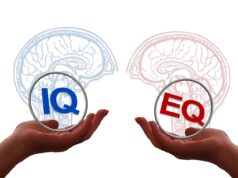Mental health service accessibility crisis in many states for minorities with different racial, ethnic, cultural, religious, and language backgrounds, viewed from Korean immigrants and their families. No providers were available even before the pandemic.
Mental Health and Well-being for All
Psychology for people from diverse populations.
In many states, mental health service has not been available for A.A.P.I. and other minorities even before the pandemic: Viewed from Korean immigrants and their families’ perspective.
Roland Kim, Ph.D. in Clinical Psychology
Since the pandemic, there has been an increase in depression, anxiety, substance use, and suicidality (C.D.C., 2020 June). With various mental issues on the rise during the pandemic, there are reports of many people turned away from waiting lines for mental health services (Caron, 2021). However, it has been even more challenging for Asian Americans and other minorities in many states with no mental health providers.
Interestingly, a recent article found the percentage of Asian populations receiving health services and perceived unmet need is lowest among all the racial and ethnic groups (Conroy, Lin, & Stamm, 2021). However, we need to explore this finding further in relation to what has recently been happening in reality. Due to a recent surge of hate crimes (Abrams, 2021), more Asians (75%), including Koreans (45%), live with fear and anxiety (Radio Korea News, 2021). According to NPR News (2021), there were 3,800 incidents of discrimination against Asian Americans reported nationwide in 2020. Many Korean American store owners who suffered from P.T.S.D. from the L.A. riot had to endure it without mental health services. However, it was not because they did not find any need for any services, but because of the lack of education and providers who would understand and speak their language.
According to Maslow’s (1970) hierarchy of needs, psychological needs come after survival and security needs are met. Many people in the majority culture with the first two needs met have enjoyed better mental health services, while many minority communities have lived a life of survival. Minorities think of mental health services as a luxury that they can only afford after overcoming their more pressing issues, such as making a living either as an immigrant or a poverty-stricken family. Even among Korean family members, second-generation children first tend to seek mental health services for the sake of their first-generation immigrant parents or in pursuit of a better relationship with them.
“I have given up finding help for my family problems. Psychotherapists in my area will not understand my culture and my family. They came from Korea as an adult, so they only speak Korean.”
Mrs. P., whose real name is not disclosed to protect her privacy, drove 1,500 miles from Oklahoma with her husband, who speaks Korean as his primary language, to see me two years ago, even before the pandemic. As a second-generation Korean-American, she was desperate to seek help from someone who would understand Korean culture and speak the same language because, otherwise, she would not feel comfortable sharing her family conflict.
Recently, Mrs. P. called again to request, this time, a teletherapy service. She has been more depressed, dealing with more intensified conflict during the pandemic. When she drove to my office two years ago from her state, intensive counseling for a week was not enough to solve her ongoing family crisis. I had to tell her to find someone locally since, as an out-of-state psychologist, five days allowed by the Oklahoma Board of Examiners of Psychologists in her state through temporary permission would not be enough to help her deal with the ongoing family conflict.
“I feel uncomfortable if I see a counselor with an interpreter. I do not want any stranger in the same room when I talk about my problem.” Her concern seemed legitimate, considering seeking mental health services is highly stigmatized in Asian culture. Besides, an interpreter can deliver the original message and its nuance incorrectly.
Even before the pandemic, many states had few to no licensed psychologists who speak the same languages and understand the cultures of foreign-born residents. At my practice in California, I have had clients who flew from Hawaii, New Mexico, Arizona, and many other states on the east coast to have brief counseling sessions before returning to their home state. A Korean client drove every week to fulfill the court-mandated counseling requirement from Las Vegas, where there were no Korean psychologists. Unfortunately, this client even got involved in a traffic accident on the way.
However, I have never realized how its seriousness and urgency until the pandemic. Since the beginning of the pandemic, I have had more inquiries about teletherapy from out-of-state clients. While mainstreamers are frustrated waiting in line for mental health services since the start of the COVID-19, many immigrant families are further out of luck because there is no line to wait since no licensed psychotherapists speaking the same languages are available in their states. The small window of getting services through out-of-state counselors granted by many states, which temporarily relaxed the licensure requirement during the COVID-19, may not be enough to motivate them to seek mental health services for their ongoing emotional problems.
In March of 2020, American Psychological Association (A.P.A.) has proposed a request for temporary suspension of the state requirements for teletherapy services for psychotherapists during COVID-19. As a result, “16 states temporarily lifted licensing requirements,” and “22 states either expanded their policies for out-of-state providers to temporarily practice in their states or instituted emergency expedited registration for out-of-state providers” (Owings-Fonner, 2020).
Though many states have been updating their restrictions with more relaxing requirements, the concern is not for a temporary five-day to 90-day window permitted during COVID-19 but for more chronic issues faced by many immigrant populations that have existed before the COVID-19. If any chronic mental health issues are left untreated, they can worsen or progress to more serious mental crises even with a minor trigger. Therefore, many immigrant families may fear the ending of the COV-19 crisis when the temporary window to get help from out-of-state psychotherapists will be closed.
Our constitution upholds that every lawful resident of the U.S. deserves equal access to healthcare services. It means everyone should have access to appropriate mental health services through qualified professionals from similar cultural and language backgrounds.
Some federal and state laws have been passed requiring cultural competency training for licensure of doctors, which include Title VI of the Civil Rights Act of 1964 and Medicare/Medicaid. Contrary to other medical care, however, psychological care requires a practitioner to understand the culture and language of the patients. Even American-born native English speakers from an immigrant family may not seek help unless they feel culturally understood by the practitioners.
According to Migration Policy Institute (M.P.I.) (2019), approximately 1.45 million Korean immigrants reside in the United States. While 40% of Korean immigrants were concentrated in the greater metropolitan areas of Los Angeles, New York, and Washington, DC, 60% of them are scattered in various cities in the U.S. (U.S. Census Bureau, 2019). However, in 2015, more than half of the Korean immigrants (ages five and older) reported having limited English proficiency (P.R.C., 2017 September 8). It means they cannot express their emotional pain in English comfortably and effectively enough to get the needed help from English-speaking psychotherapists. Even without counting the rising cases of the recent hate crimes against them, many Korean immigrants are still under the cultural influence of Korea, which has had the highest suicide rates in the O.E.C.D. countries for more than a decade (Kung et al., 2018). Even before the pandemic, the suicidal mortality rate of Korean Americans was twice that of other ethnic groups (Kung et al., 2018).
More than four decades ago, while stressing the importance of cultural and language match between clients and therapists, Sue and Sue (1977) warned that when the communicators’ first languages are different, the messages delivered can be in short sentences and ambiguous with different nuances, creating significant misunderstandings. Iwamasa (2012) stressed that Asian-American Pacific Islanders need bilingual treatment providers who must be trained in culturally competent treatment models and educated on the prevalence, manifestation, and treatment of Asian culture-bound syndromes.
However, many psychologists from the same cultural and language background mainly practice in major metropolitan cities such as Los Angeles and New York without motivation to seek licensure, let alone even a temporary one, in those states where there appears not enough Korean population who would seek psychological help. Presently, over 6,000 Koreans in Oklahoma and 13,800 Koreans in Nevada live scattered around various cities (U.S. Census Bureau, 2017), while there are no available Korean psychologists in their states. Surprisingly, 23 states do not have any Korean-speaking licensed psychotherapists; eight states have one; and nine states have less than five (Psychology Today, 2021).
Psychologists must be available even in a non-crisis situation to meet the needs of these patients to prevent a potential future crisis by providing necessary education and services, which the federal government has now declared as critical and essential (C.D.C., 2020). The temporary measure currently allowing 5 to 90 days of teletherapy to other state practitioners during the COVID crisis is not enough to tackle the ongoing psychological problems that will take longer in resolution, and any conscientious and responsible psychotherapists would agree with me.
The federal legislation does not supersede state licensing laws, and licensed psychologists cannot provide services across state lines in a non-crisis situation, except through temporary licensure during a crisis like the COVID-19. Therefore, I call for suspensions of state licensing laws and regulations regarding teletherapy services indefinitely to meet the critical needs of these vulnerable populations.
There has been an increase in interest in mental health services in the Korean-American community and the rise in the number of mental health providers in major metropolitan areas such as Los Angeles and New York. However, The most increase is due to the increase of awareness among the younger generation. Still more than half of the immigrant population is under the influence of the trend in Korea that has been experiencing the highest rate of suicide among the O.E.C.D. countries for more than a decade.
Many Korean residents who may wish to get help from culturally compatible psychotherapists will give up their search if no such provider is available locally, in addition to their feeling of shame seeking help in mental health, which is culturally stigmatized. This problem may extend to many minority communities, who may have difficulty finding culturally compatible psychotherapists due to their unique cultural, religious, gender, or sexual orientation and the unavailability of psychotherapists from the same or similar backgrounds. It also applies to many immigrant populations with limited English proficiency and no access to licensed counselors who share the same mother tongue and culture in their states. These immigrant populations include those speaking Spanish, Cantonese, Mandarin, Japanese, Indian, Thai, Pakistani, Malay, Burmese, Vietnamese, Indonesian, Filipino, Hmong, Persian, Arabian, and many other foreign languages. Their search is even more limited if we consider the wider gender gap in the psychology workforce in Black/African American, Hispanic, Asian and other minority cultures (Lin et al., 2015), where males may feel more comfortable and seek help only through male counselors.
In a mature society, community leaders and policymakers can lead the way to the better mental health of the minority members even when they are not aware of its importance. The wise question the policymakers can ask is what we should do if the same community that suffers from crime and trauma does not perceive the need and importance of mental health services. Who are we versus them in the minds of our community leaders?
Thanks to the COVID-19 crisis, a significant potential civil rights issue under the radar due to our oversight has surfaced.
In this sense, the role of the community leaders, such as politicians, is crucial in educating the community and modeling and planning for the unforeseen future. Mental health issues from any traumatic experiences, whether through their family or society, can be the most crucial cause of stress and future health problems if their timely treatment is not provided. As many health and legal professionals agree, many health problems and crimes are linked to the mental health issues.
If each state can relax stringent rules and laws across the state lines regarding teletherapy, the threshold for these minority communities to get their psychological needs met will be substantially lowered. It will help them not give up or travel hundreds of miles across the states unnecessarily to see psychotherapists who match their culture or language.
Table 1: Korean-speaking psychologists per Korean population in various states
(Source: 2017, U.S. Census Bureau, 2012-2016 American Community Survey 5-Year Estimates, Psychology Today, 2021)
State | Korean (1.45 Mil, 2016 Est.)
| Korean |
State | Korean (1.45 Mil, 2016 Est.)
| Korean |
So. | 418035 | 120 | Oklahoma | 6386 | 0 |
No. | 52000 | 10 | Utah | 6332 | 2 |
New | 130859 | 41 | Iowa | 6124 | 0 |
New | 97161 | 24 | South | 6033 | 0 |
Texas | 70883 | 15 | Kansas | 5665 | 2 |
Virginia | 69101 | 17 | Kentucky | 4829 | 0 |
Washington | 62911 | 15 | Alaska | 4697 | 0 |
Illinois | 59726 | 22 | Louisiana | 4003 | 0 |
Georgia | 54563 | 11 | Nebraska | 2867 | 0 |
Maryland | 49159 | 12 | District | 2558 | 2 |
Pennsylvania | 40258 | 5 | New | 2389 | 0 |
Florida | 28627 | 1 | Delaware | 2289 | 0 |
Michigan | 25559 | 1 | Arkansas | 2153 | 0 |
Massachusetts | 24687 | 7 | Mississippi | 2012 | 1 |
Hawaii | 22924 | 4 | New | 1925 | 0 |
Colorado | 21340 | 8 | Idaho | 1727 | 0 |
North | 19736 | 3 | Rhode | 1725 | 0 |
Ohio | 16074 | 1 | Montana | 1435 | 0 |
Minnesota | 15977 | 1 | West | 1245 | 0 |
Oregon | 15582 | 4 | Maine | 1102 | 0 |
Arizona | 15407 | 1 | Vermont | 1057 | 0 |
Nevada | 13870 | 1 | South | 1007 | 0 |
Tennessee | 11159 | 1 | Wyoming | 508 | 0 |
Alabama | 11068 | 0 | North | 507 | 0 |
Indiana | 10345 | 2 | Puerto | 72 | 0 |
Connecticut | 10110 | 2 |
|
|
|
Missouri | 9393 | 3 |
|
|
|
Wisconsin | 8821 | 0 |
|
|
|
References
Abrams, Z. (2021). The mental health impact of anti-Asian racism. American Psychological Association (A.P.A.).
https://www.apa.org/monitor/2021/07/impact-anti-asian-racism
Caron, C. (2021, February 17). ‘Nobody has openings’: Mental health
providers struggle to meet demand. New
York Times. https://www.nytimes.com/2021/02/17/well/mind/therapy-appointments-shortages-pandemic.html
Centers for Disease Control and Prevention (C.D.C.).
(2020). Mental health care: Household pulse survey. C.D.C.
https://www.cdc.gov/nchs/covid19/pulse/mental-health-care.htm
Centers for Disease Control and Prevention (C.D.C.). (2020). Interim list
of categories of essential workers mapped to standardized industry codes and
titles. C.D.C. https://www.cdc.gov/vaccines/covid-19/categories-essential-workers.html
Conroy, J., Lin, L., & Stamm, K.
(2021). The demographics of unmet need for mental health services. American Psychological Association (A.P.A.).
https://www.apa.org/monitor/2021/04/datapoint-mental
Czeisler, M., Lane, R., Petrosky, E.,
Wiley, J., Christensen, A., Njai, R., Weaver, M., Robbins, R., Facer-Childs,
E., Barger, L., Czeisler, C., Howard, M., & Rajaratnam, S. (2020,
August 14). Mental health, substance use, and suicidal ideation during the
COVID-19 pandemic — the United States, June 24–30, 2020. Centers for Disease Control
and Prevention (C.D.C.), 69(32),
1049–1057. https://www.cdc.gov/mmwr/volumes/69/wr/mm6932a1.htm
Iwamasa, G. (2012). Recommendations for the treatment of
Asian-American/Pacific Islander populations. A.P.A. http://www.apa.org/pi/oema/resources/ethnicity-health/asian-american/psychological-treatment
Joo, H. S. (2021, March 13).
Asians fear hate crime 75%, Korean 45%.
Radio Korea News. https://www.radiokorea.com/news/article.php?uid=361681
Kung, A., Hastings, K. G., Kapphahn, K. I., Wang, E.
J., Cullen, M. R., Ivey, S. L., Palaniappan, L. P., & Chung, S. (2018). Cross-national
comparisons of increasing suicidal mortality rates for Koreans in the Republic
of Korea and Korean Americans in the U.S.A., 2003–2012. Epidemiology
and Psychiatric Sciences, 27(1),
62–73. https://doi.org/10.1017/S2045796016000792
Lin, L., Nigrinis, A., Christidis, P., &
Stamm, K. (2015). Demographics of the U.S. psychology workforce. American Psychological Association
(A.P.A.). https://www.apa.org/workforce/publications/13-demographics/repor.pdf
Maslow, A. H. (1970). Motivation and Personality (3rd ed.). New York, NY: Addison-Wesley
Educational.
Nuyen, S. (2021, March 17).
Anti-Asian attacks rise during pandemic. Read NPR’s stories on the surge
in violence. NPR News.
https://www.npr.org/2021/03/17/978055571/anti-asian-attacks-rise-during-pandemic-read-nprs-stories-on-the-surge-in-violen
Owings-Fonner, N. (2020). Telepsychology expands to meet demand: A.P.A.
advocacy convinced regulators to change telehealth rules to increase access to
care during the pandemic. American
Psychological Association (A.P.A.). 51(4),
1-8. https://www.apa.org/monitor/2020/06/covid-telepsychology
Pew Research Center (P.R.C.). (2017). English proficiency of Korean
population in the U.S., 2015. P.R.C. https://www.pewresearch.org/social-trends/chart/english-proficiency-of-korean-population-in-the-u-s/
Psychology Today (2021). Find a Korean Therapist. https://www.psychologytoday.com/us/therapists/korean
Sue, D., & Sue, D. (1977). Barriers to effective
cross-cultural counseling. Journal of
Counseling Psychology, 24,
420-429. https://doi.org/10.1037/0022-0167.24.5.420.
U.S. Census
Bureau (2005). S0201 Selected Population Profile in the United States, United States Census Bureau, archived from the original on
2020-02-12, retrieved 2021-03-15
https://archive.ph/20200212040142/http://factfinder.census.gov/servlet/IPTable?_bm=y&-geo_id=01000US&-qr_name=ACS_2005_EST_G00_S0201&-qr_name=ACS_2005_EST_G00_S0201PR&-qr_name=ACS_2005_EST_G00_S0201T&-qr_name=ACS_2005_EST_G00_S0201TPR&-ds_name=ACS_2005_EST_G00_&-reg=ACS_2005_EST_G00_S0201:042;ACS_2005_EST_G00_S0201PR:042;ACS_2005_EST_G00_S0201T:042;ACS_2005_EST_G00_S0201TPR:042&-_lang=en&-redoLog=false&-format=
U.S. Census Bureau (USCB). (2017). 2012-2016 American
Community Survey (A.C.S.) 5-Year estimates. USCB.
https://www.census.gov/programs-surveys/acs/technical-documentation/table-and-geography-changes/2016/5-year.html








